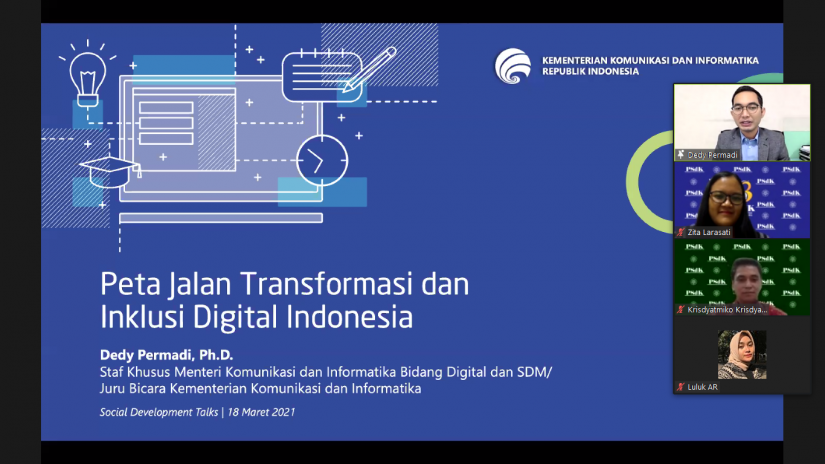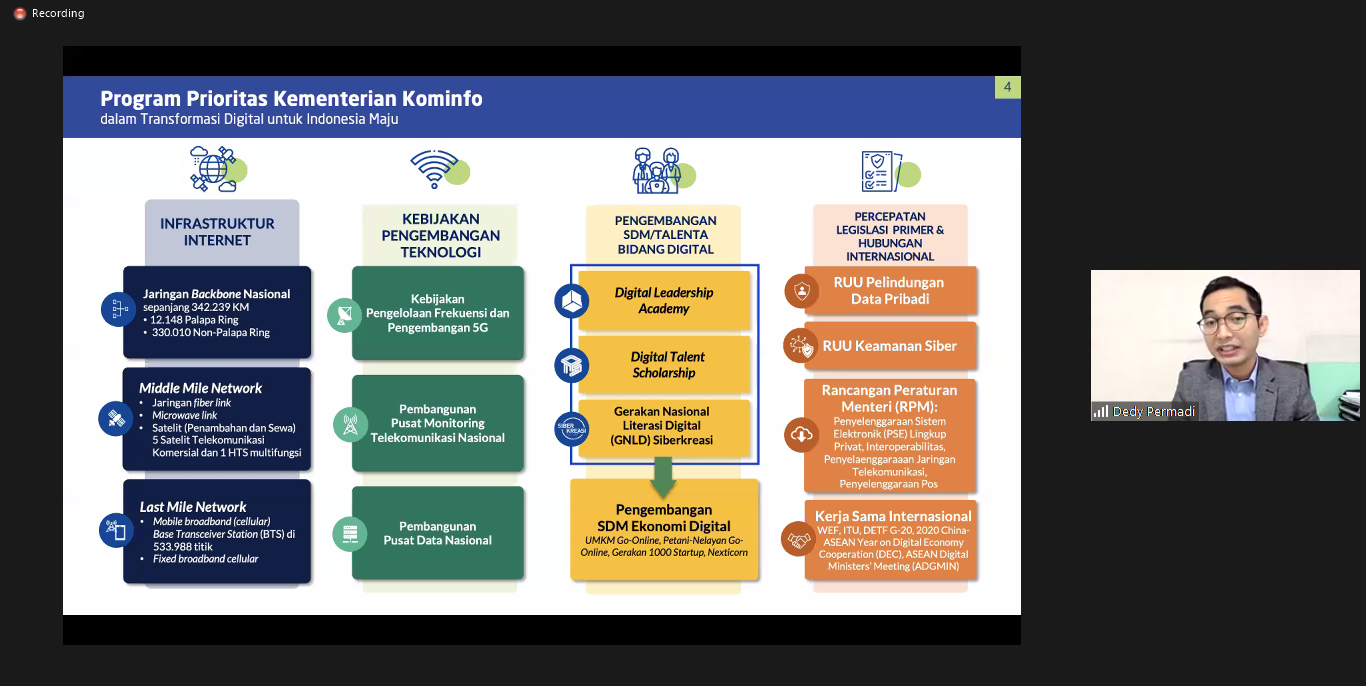
Dedy explained, currently, the Indonesian government is preparing an agenda for the Acceleration of National Digital Transformation, which encourages the principle of inclusiveness in it. In his presentation, Dedy showed that there are four priority sectors that are being pushed by the government. Four of them are the internet’s infrastructures, policy of technology development, the development of human resources or digital talents, and acceleration of primary legislation and international cooperation.

In the context of inclusiveness, Dedy explained that there are major problems faced by all Indonesians, such as the slow internet or even the absence of the internet. According to him, at certain points this problem has been complained of by many people. Dedy gave an example in the 3T areas (disadvantaged, foremost, and outermost areas in Indonesia) students who go to school online have to climb trees. “This is a portrait of the gap in our telecommunication infrastructure,” Dedy said.
Based on the data, Dedy continued that Indonesia has 12,548 villages that do not have 4G signal access from a total of more than 83 thousand villages in Indonesia. “Of these 12 thousand, 9,113 of them are in the 3T areas,” Dedy added. According to him, this is one of the things that has increased the internet gap in Indonesia.
Dedy then continued that there were two solutions to overcome this problem, those are development and improvement. He explained that areas that do not yet have a Base Transceiver Station (BTS) tower need to be built. Meanwhile, for areas that already have BTS towers but the specifications are 3G, an increase should be made to 4G. Dedy also added the need to coordinate with other stakeholders to address the internet gap in 3T and non 3T areas.
In the discussion session, Baharudin asked about the road map for reducing the digital divide and the welfare gap. Dedy answered with the explanation that the Ministry of Communication and Information held a focus group discussion (FGD) with many institutions such as the Ministry of Economic Affairs and the Ministry of National Development Planning, Republic of Indonesia (Bappenas). Other than that, FGD was also conducted with the Ministry of Social Affairs (Kemensos) which aims to align the Ministry of Communication and Information digital divide reduction program with the Ministry of Social Affairs mission to reduce social inequality. He continued that the results of these FGDs resulted in 100 initiatives derived from cross-institutional interests. “Of the 100 leading initiatives, there are some that target social welfare issues, for example developing applications for poverty funds,” Dedy added.
